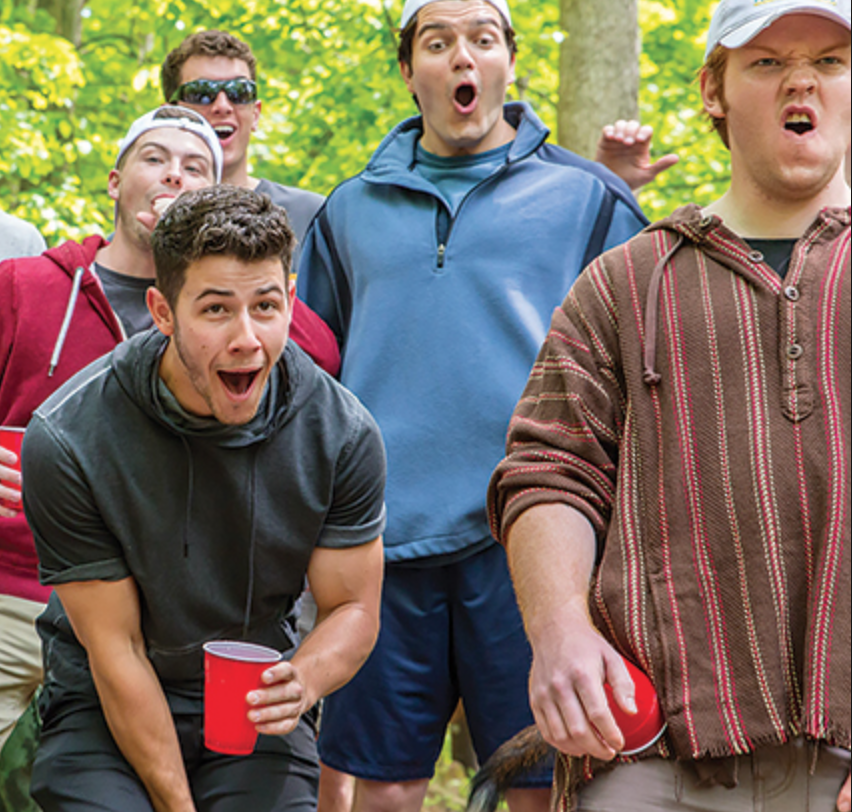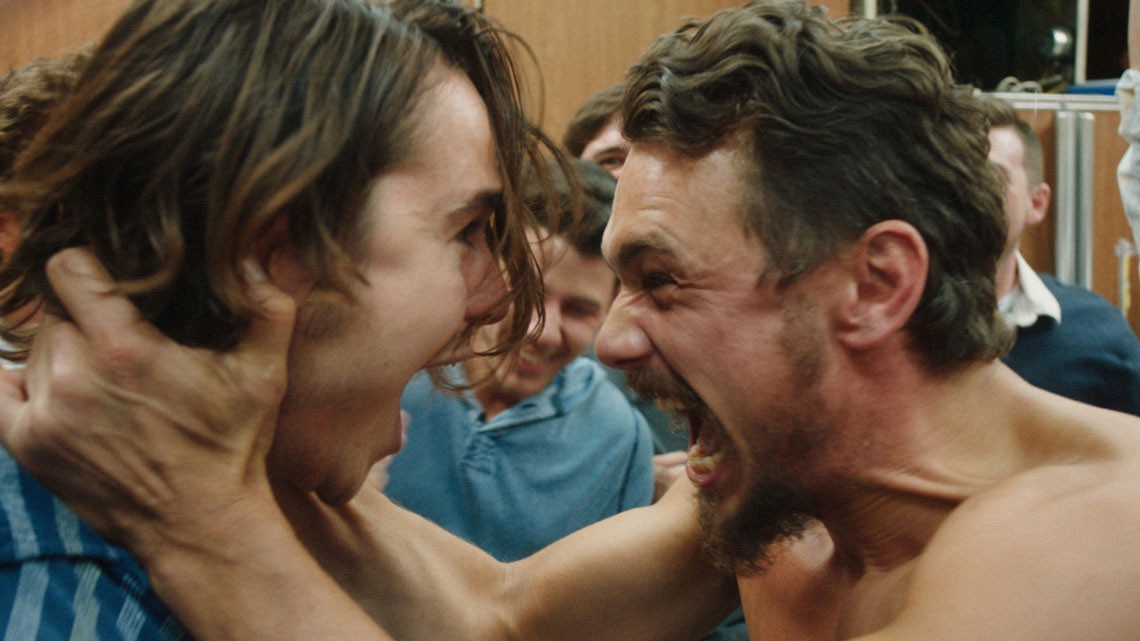 “Goat” is so far from what you’d expect from a Jonas Brother movie that calling it a Jonas Brother movie misses the boat. It is true that it stars Nick Jonas. But given that he delivers a considered, nuanced performance as someone besides himself, and given that this adaptation of Brad Land’s 2004 eponymous memoir is about as far from a pop-star vehicle as an American indie about white men can get, let’s dispense with any biases you may bring to this film. I had to, and I’m glad I did.
“Goat” is so far from what you’d expect from a Jonas Brother movie that calling it a Jonas Brother movie misses the boat. It is true that it stars Nick Jonas. But given that he delivers a considered, nuanced performance as someone besides himself, and given that this adaptation of Brad Land’s 2004 eponymous memoir is about as far from a pop-star vehicle as an American indie about white men can get, let’s dispense with any biases you may bring to this film. I had to, and I’m glad I did.
Ironically, this is about a fraternity, which easily could qualify it as a boys-will-be-boys lark a la “Animal House” or “Neighbors.” Directed by Andrew Neel, “Goat” is a more serious venture – one that tackles the sadism of this all-American institution with a refreshing candor.
The film begins with a blurred close-up of a mass of shirtless frat brothers bounding up and down and howling in a primal scream drowned out by a wordless, ambient Arjan Miranda composition. It is a shot that summons the ecstasy of a primitive tribe.
We then meet Brad (Ben Schnetzer), a high school student self-consciously hanging out at a kegger with older brother Brett (Jonas), the life of the party as he chops coke and hustles ladies. When Brad agrees to give a lift home to two dudes hanging outside, you can imagine him thinking, “This is how bros do.” How they do indeed. The guys, who turn out to be townies nursing a healthy dose of class rage, beat him soundly before stealing his car, and it takes the 18-year-old months before he can summon the courage to begin matriculating at the local Southern college where Brett, who blames himself for his brother’s attack, rules as a Phi Sigma Mu king.
 Brett encourages Brad to pledge at his fraternity, partly to help the younger boy regain his bearings and partly because this is how bros do, but an awkwardness now looms between the two. Though the frat brothers claim to support Brad, they seem scornful “he didn’t fight back”; some of their hazing deliberately references details of Brad’s attack. Shot mostly from the younger brother’s perspective, these rituals are shit-shows, sometimes literally. Beaten, blindfolded, stripped; coated in mud, feces, urine, semen, and old food; and forced to chug kegs way past the point of alcohol poisoning, the “goats,” as the frat brothers refer to their pledges, are aptly nicknamed. They are not treated as humans, and to survive what’s essentially elective torture – “Let’s do like Guam!” woops one bro – the freshmen stop regarding themselves as human as well.
Brett encourages Brad to pledge at his fraternity, partly to help the younger boy regain his bearings and partly because this is how bros do, but an awkwardness now looms between the two. Though the frat brothers claim to support Brad, they seem scornful “he didn’t fight back”; some of their hazing deliberately references details of Brad’s attack. Shot mostly from the younger brother’s perspective, these rituals are shit-shows, sometimes literally. Beaten, blindfolded, stripped; coated in mud, feces, urine, semen, and old food; and forced to chug kegs way past the point of alcohol poisoning, the “goats,” as the frat brothers refer to their pledges, are aptly nicknamed. They are not treated as humans, and to survive what’s essentially elective torture – “Let’s do like Guam!” woops one bro – the freshmen stop regarding themselves as human as well.
Obviously, nothing could be more triggering for a boy who’s just suffered a traumatic assault. But wily Neel, working from a screenplay written with Mike Roberts and indie star David Gordon Green, uses aggressively naturalistic filmwork to convey that the assault has merely pulled the wool from this lamb’s eyes – that toxic masculinity is on a continuum shaped by class, race, and cultural access. The lenswork is unfussy and uncluttered; the lighting unobtrusive; and the male students so blandly white, well-off, and nasty that, with the exception of Brad and Brett, you can scarcely tell them apart. None of the Phi Sigma Mu brothers boast the charisma of most frat-movie characters – there’s no wisenheimer with a heart of gold, no charming-despite-himself lothario, no slightly-smarter-than-the-rest father figure. Nay, these dudes are just dicks. (Sometimes they even pull out their dicks.)
Eventually these bros go so far that the normally lenient school administration is forced to take action. The police even get involved,  and the nasty fascism lurking in frat culture comes to the forefront as the pledges, especially Brad, are grotesquely threatened lest they share any details of their hazing. Roughly edited in patches (a few subplots are abandoned too soon; a cameo from producer James Franco seems out of place), this is an otherwise seamless indictment of male brutality within and beyond the ivory towers. For this alone, “Goat” deserves commendation, but what saves it from ever devolving into a PSA is the chemistry between Jonas and Schnetzer. Subtle and admirably nonverbal, it is a reminder of everything men can share in a world less restricted by gender codes.
and the nasty fascism lurking in frat culture comes to the forefront as the pledges, especially Brad, are grotesquely threatened lest they share any details of their hazing. Roughly edited in patches (a few subplots are abandoned too soon; a cameo from producer James Franco seems out of place), this is an otherwise seamless indictment of male brutality within and beyond the ivory towers. For this alone, “Goat” deserves commendation, but what saves it from ever devolving into a PSA is the chemistry between Jonas and Schnetzer. Subtle and admirably nonverbal, it is a reminder of everything men can share in a world less restricted by gender codes.
This was originally published on Signature.
